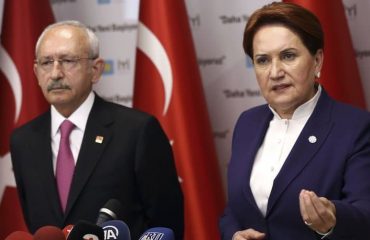

In his New Year’s message published at 10:00 am on December 31 2021, President Tayyip Erdogan said: “We will continue our fight against the plots of excessive price that emerged after the increase in global commodity prices well as the unbalanced rise of the exchange rate. We are determined to reach our goals by placing Turkey among the world’s ten largest economies.”
Twelve hours after his message, just before entering 2022, a chain of price hikes was announced, heralding new series of price hikes in the new year.
Electricity price was increased 50 percent for households with less than 150 KWH monthly electricity consumption, 130 percent for families with over 150. The price of natural gas for electricity generation increased 15 percent, household consumption increased 25 percent, and industrial production increased 50 percent. With the increase in gasoline and diesel fuel prices, the price for a litre rose above 12 Turkish Liras. Transit fees for bridges are also increased. Public housing rents got an 18 percent increase which possibly caused a further increase in the already high rents.
This excessive increase in energy prices will be reflected in the basic food prices, from bread to cheese, meat to milk, eggs to vegetables and fruits.
Wages will stay the same
On December 30, one day before the announcement of this hike, Erdoğan held a meeting with Vedat Bilgin, Minister of Labor and Social Security, and Ergün Atalay, President of Türk-İş, in Beştepe. On the same day, the workers affiliated with the Türk-Metal Union, headed by Türk-İş Secretary-General Pevrul Kavlak, in the delegation meeting with the President, were protesting the 17 percent increase in their wages in Ankara. However, according to Turkish Statistical Institute (TÜİK) figures, the official inflation rate is 21 percent as of November. This is a number from an institution, which surveys show that the overwhelming majority of the public does not trust.
The announcement of this exorbitant price hike on the night of December 31 and the ones continued on January 1 will negatively affect people’s confidence in the Erdoğan government. Because millions of people, from labour unions to civil servant retirees, are waiting for the December 2021 inflation rate to be announced on January 3. After the announcement, the total inflation rate for 2021 will be calculated, and wage increases will be set accordingly. In other words, wage increases for workers, civil servants and retirees will be calculated with current prices until the last day of 2021, but people will live with new exorbitant prices of 2022.
One price tag over other, in the rain of increases
“The welfare and security that the developed countries established after the Second World War cannot survive at the expense of pain, misery and objections of the rest of the humanity,” Erdoğan said in his New Years’s speech, almost like an “anti-imperialist sauce” to the address.
Will the price hikes be a part of Erdoğan’s anti-imperialist plan? Is this the good news that the AKP government initiated the “economic transformation of Turkey,” which he heralded in the same speech? I wonder what Turkey is transformed into when the Turkish economy has grown such a manner that even Turkey’s big capitalists club TÜSİAD express their discontent about the growing gap between rich and the poor.
Erdogan attributes the excessive price increases to stockpilers and markets, greengrocers, butchers and grocers, not to the actions of the governments he has governed for the last 19 years. With the foreign exchange-interest rate operation on December 20, the Turkish Lira has gained some value against foreign currencies for a week, then started to devalue again. Market chains have announced that they have reduced prices for basic food, vegetables and fruits. (Similar discount was previously suggested to the market chains by the CHP leader Kemal Kılıçdaroğlu.) The price hikes on December 31 at midnight are of the type that will make the prices increase when the discount on some labels has just been reflected on the price tags.
How long can an economy be managed with hostility?
President Erdoğan continues to announce bigger targets looking through rose-coloured glasses, while Turkey’s place in international standards is gradually receding from per capita income to the uneven income distribution, from women’s rights to independence of the judiciary and freedom of the press.
His final goal, which he declared in his New Year speech, is to transform (not change) the global capitalist order, but to become one of the top ten countries in that global capitalist order. They are trying to cover up these hikes, financial difficulties and unemployment by producing hostility saying “Germany is jealous of us, England is devastated, America is bankrupt.”
Is this sustainable? If yes, how much longer? Maybe crisis can be managed for a while, but can the economy be managed like that permanently?
This is how we entered 2022. We will see the future…


